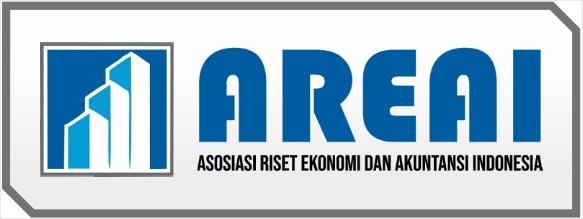SWOT Analysis of Indonesian Coastal Tourism Destination Marketing in the International Office
DOI:
https://doi.org/10.61194/economics.v2i3.207Keywords:
SWOT Analysis, Beach Tourism, Tourism Marketing, Indonesia, Global CompetitivenessAbstract
This study examines the marketing strategy of beach tourism destinations in Indonesia through a SWOT (Strengths, Weaknesses, Opportunities, Threats) analysis approach. The background of this study is based on the importance of beach tourism as a major economic sector that contributes significantly to national income, especially in countries with great beach tourism potential such as Indonesia. The research method used is a SWOT analysis to identify the strengths, weaknesses, opportunities, and threats faced by beach tourism destinations in Indonesia. The results of the study show that the main strengths of Indonesian beach tourism destinations include pristine natural beauty, rich underwater ecosystems, supporting facilities, and rich local culture. However, weaknesses such as lack of infrastructure, ineffective promotion, and low service quality are still major challenges. Opportunities include increasing global interest in Indonesian beach tourism, advances in information technology, and sustainable tourism trends. Meanwhile, threats such as intense global competition, natural disasters, and marine pollution require mature risk management. The conclusion of this study emphasizes the need for innovative and sustainable marketing strategies to improve the global competitiveness of Indonesian beach tourism. Practical recommendations include improving infrastructure, more effective promotion, and developing sustainable tourism.
References
Aditya, P. (2020). Konservasi Alam dan Pariwisata. Pustaka Sinar Harapan.
Alicja Gonia and Aleksandra Jezierska-Thöle (2022), Sustainable Tourism in Cities—Nature Reserves as a ‘New’ City Space for Nature-Based Tourism. https://www.mdpi.com/2071-1050/14/3/1581 DOI: https://doi.org/10.3390/su14031581
Badan Pusat Statistik (BPS). (2019). Statistik Pariwisata Indonesia. Jakarta: BPS.
Briandana, R., Doktoralina, C. M., & Sukmajati, D. (2018). Promotion analysis of marine tourism in Indonesia : a case study. European Research Studies Journal, 21(1), 602-613 DOI: https://doi.org/10.35808/ersj/973
Chon, K., & Singh, A. (2022). Strategic Management in Tourism: Concepts and Cases. Routledge.
Citra Aditya Kusuma , Abid Abid, (2022), Developing a Digital-Based Marketing Strategy to Promote Beach Attractions in Indonesia: a Case of Botutonuo Beach in Gorontalo. DOI: https://doi.org/10.15421/192219
Creswell, J. W., & Poth, C. N. (2018). Qualitative Inquiry and Research Design: Choosing Among Five Approaches. SAGE Publications.
Freddy, A. (2014). Analisis SWOT untuk pengembangan agrowisata di desa Sukomoro Kecamatan Pakis Kabupaten Magelang. Jurnal Sosiologi Pedesaan, 1(1), 1-10.
Gianluca Goffi, Marco Cucculelli, Lorenzo Masiero (2019), Fostering tourism destination competitiveness in developing countries: The role of sustainability. https://doi.org/10.1016/j.jclepro.2018.10.208. https://www.sciencedirect.com/science/article/abs/pii/S095965261833230X DOI: https://doi.org/10.1016/j.jclepro.2018.10.208
Guest, G., Bunce, A., & Johnson, L. (2006). How many interviews are enough? An experiment with data saturation and variability. Field Methods, 18(1), 59-82. DOI: https://doi.org/10.1177/1525822X05279903
Gurel, E., & Tat, M. (2017). SWOT Analysis: A Theoretical Review. The Journal of International Social Research, 10(51), 994-1006. DOI: https://doi.org/10.17719/jisr.2017.1832
Hermawan, I. (2017). Pemasaran Pariwisata Berkelanjutan. Yogyakarta: Universitas Gadjah Mada.
Issahaku Adam (2021), Tourists' perception of beach litter and willingness to participate in beach.https://doi.org/10.1016/j.marpolbul.2021.112591.clean-up. https://www.sciencedirect.com/science/article/abs/pii/S0025326X21006251. DOI: https://doi.org/10.1016/j.marpolbul.2021.112591
Holloway, J. C., & Humphreys, C. (2020). The Business of Tourism. SAGE Publications.
Kennedy, Posma Sariguna Johnson and Tobing, Suzanna Josephine L. and Toruan, Rutman L. (2022) Marketing strategy with marketing mix for Lake Toba tourism destination. Journal of Sustainable Tourism and Entrepreneurship (JoSTE), 3 (3). pp. 157-174. ISSN 2714-6480 DOI: https://doi.org/10.35912/joste.v3i3.1515
Kurniawan, A., Wahyudi, T., & Utami, D. (2020). Marketing Strategies for Enhancing Tourism Competitiveness: A Case Study of Indonesian Beach Destinations. Journal of Hospitality and Tourism Management, 45, 23-34.
Lee, K., Hallak, R., & Sardeshmukh, S. R. (2019). Innovation, Entrepreneurship, and the Evolution of Tourism Industry Competitiveness. Tourism Management Perspectives, 30, 145-158.
Mondal, Md. Sanaul Haque (2017), SWOT analysis and strategies to develop sustainable tourism in Bangladesh. https://www.econstor.eu/handle/10419/195304
Nash, R. (2017). Sustainable Tourism Development: The Role of Marketing. Journal of Sustainable Tourism, 25(2), 195-208.
Nezha Mejjad, Alessia Rossi, Ana Bianca Pavel (2022), The coastal tourism industry in the Mediterranean: A critical review of the socio-economic and environmental pressures & impacts. https://www.sciencedirect.com/science/article/abs/pii/S2211973622000721. https://doi.org/10.1016/j.tmp.2022.101007 DOI: https://doi.org/10.1016/j.tmp.2022.101007
Sharpley, R., & Telfer, D. J. (2018). Tourism and Development in the Developing World. Routledge.
Smith, M., & Richards, G. (2021). Routledge Handbook of Tourism and the Environment. Routledge.
Suryadarma, D. (2018). Strategi Pengembangan Pariwisata di Indonesia. Jurnal Pariwisata Indonesia, 12(2), 45-56.
Suryadarma, D. (2018). The Role of Tourism in Economic Development: A Perspective on Indonesian Beach Tourism. Asian Economic Policy Review, 13(2), 210-225.
Sutono, A. (2019). Strategi Pemasaran Pariwisata untuk Destinasi Pantai di Indonesia. Yogyakarta: Universitas Gadjah Mada.
Syahlan Mattiro, Cucu Widaty, Yuli Apriati (2023), Historical Cultural Maritime Notes and the Integration of Its Values in Shaping the Self-Reliance of Coastal Ecotourism. https://doi.org/10.30872/yupa.vi0.1937. https://jurnal.fkip.unmul.ac.id/index.php/yupa/article/view/1937 DOI: https://doi.org/10.30872/yupa.vi0.1937
Toman Sony Tambunan (2020), SWOT Analysis for Tourism Development Strategy of Samosir Regency.https://d1wqtxts1xzle7.cloudfront.net/69194960/12723libre.pdf?1631110114=&response-content-disposition=inline
Thomas Martin Key, Andrew J. Czaplewski, (2017), Upstream social marketing strategy: An integrated marketing communications approach.
United Nations World Tourism Organization (UNWTO). (2018). Tourism Highlights. Madrid: UNWTO.
Widodo, H. (2019). Analisis SWOT dalam Pengembangan Pariwisata. Jurnal Manajemen dan Kewirausahaan, 21(1), 34-48.
Widodo, S. (2019). SWOT Analysis in the Development of Indonesian Beach Tourism. Tourism Review, 74(4), 658-675.






